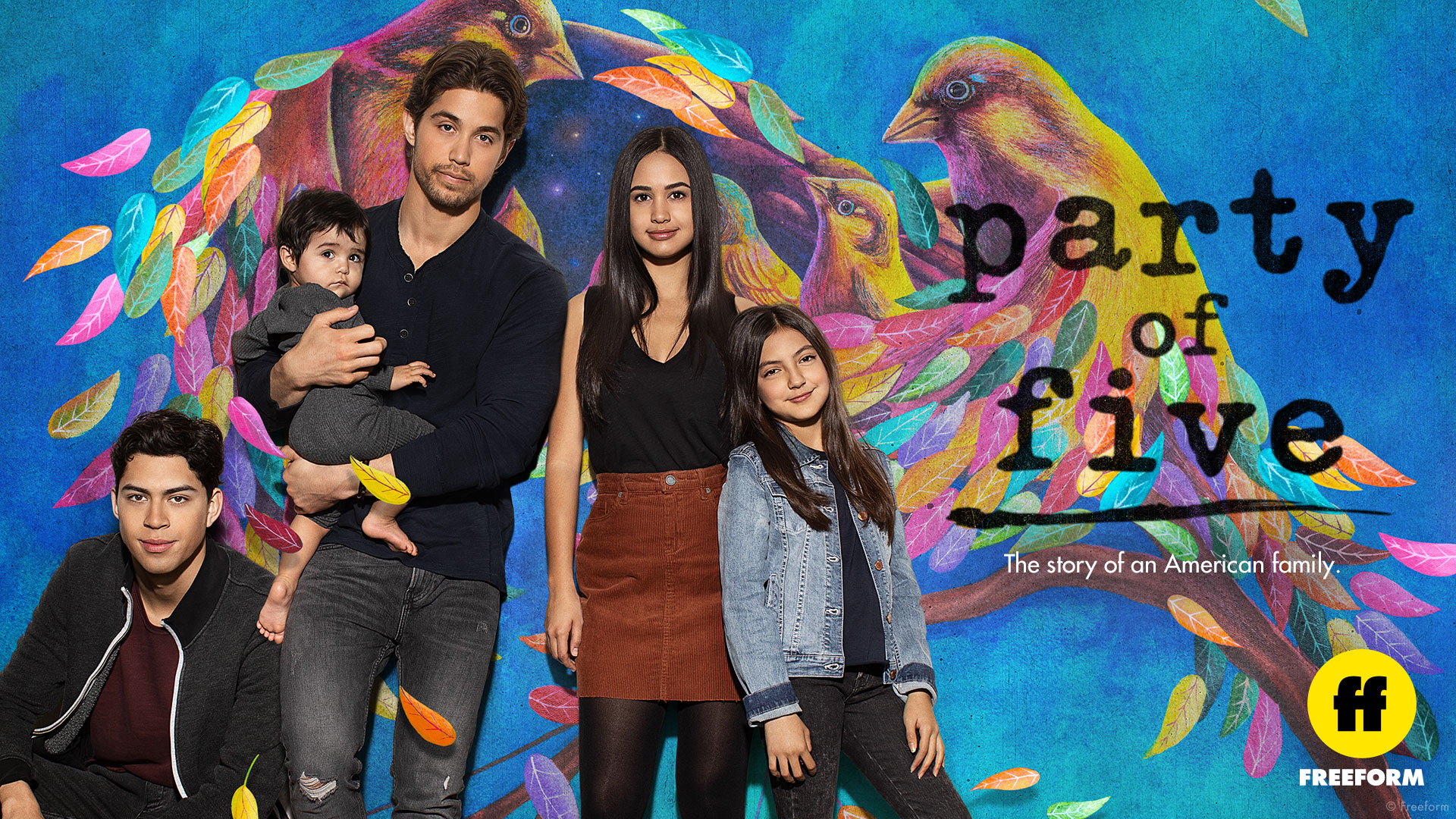Party of Five is a tear-jerker. The original show had its premise of orphaned siblings learning to take care of each other. With this reboot, the parents aren’t dead but deported. Layering typical teen storylines with the anger of being betrayed by your country, it is ripe territory. The first season made me cry all the tears, but don’t for a second think the show was just trauma porn. No, Party of Five inspired righteous anger and action-oriented empathy so let’s revisit the moments that meant the most.
1. The Pilot

The Acosta parents get picked up by ICE, spend time in detention, have their day in court, and are bussed across the border in the pilot. I cried. A lot. The scene where they get picked up in front of their children was the thing of nightmares. As the mother of young kids myself, I am haunted by the pain involved in deciding to leave their baby in the States. But the moment that hist me the hardest was Valentina’s testimony. She’s just a kid, a middle schooler, and there she was, up on the stand trying to convince a judge that taking her loving parents from her will represent “exceptional and unusual hardship.” She convinced me.
Val pouring her heart out and the best immigration attorney in LA aren’t enough to convince the judge. He literally says “my hands are tied,” despite being the decision-maker. A white man seals their fate. It’s infuriating, especially watching it in an election year. We set the laws of this country. I vote for the judges in my county. We must do better and change these hurtful practices so the real-life Acostas don’t have to go through this agony.
Get involved with changing the courts.
2. Lucia’s Speech

“Cruelty is the point” has become somewhat of a refrain about the current administration and so it makes sense the phrase popped up in Lucia’s unplanned speech in Party of Five’s seventh episode. In “Speak for Yourself,” Lucia organizes a fundraiser for an immigrants’ rights group and one of the activists challenges her to tell her own story. Here’s what she says:
I was remembering how my father shaved every morning. No matter what. Weekends. Vacations. Even when he was sick. He used to sit me on the counter, so I could watch him use his gleaming straight razor. The detention center was the first time I ever saw him with stubble. And when I went to kiss him, his cheek next to mine, it felt like a stranger’s and stupidly, I said something.
And the next time, there he was — from a distance, his old self, clean-shaven. But up close his face was raw. Covered in tiny cuts. He laughed it off and said he couldn’t find a mirror. But these past few weeks, learning about the conditions in these places, I realized that he was lying. There was probably one dull disposable razor that made the rounds from cell to cell. From father to father. Each man afraid of his children not recognizing him. Every man ashamed of appearing to be just a creature in a cage, deprived of every necessity that allows us to feel human. It’s on purpose, of course. There aren’t supply shortages or inadequate funds. Cruelty is the point.
It speaks for itself. Help protect immigrants’ rights.
3. The Acosta Parents Separate

At the end of the penultimate episode of the first season, Gloria Acosta tells her husband she wants to separate. Losing her kids has destroyed her sense of herself, her role in her family, and maybe her relationship with her husband. She doesn’t want to be a wife if she’s prevented from being the mother she is.
Gloria’s angry and ready to burn the whole thing down and I don’t blame her. What made this revelation so brutal was not the divorce — parents separate all the time — but rather the complete devastation wrought by our government. All season, the Acostas had been fighting for their family, an imperfect but loving group who need and respect each other. With the parents’ impending separation, the dream, the vision, the narrative of this once strong family crumbles. Even if its members could reunite, there may be nothing to put back together.
4. Emilio is Not to Blame

Oldest brother Emilio spends the season adjusting to his role as a caretaker for his four younger siblings. He gives up touring with his band, hanging up his guitar in the family restaurant. He stops hooking up with random women and tries to build more stable relationships. But it’s not enough to transition this early 20’s Dreamer into the parent the traumatized Acosta kids need. Rafa gets lead poisoning. Val runs away, making it to the border before getting caught.
As a result, Emilio finds himself in state-mandated parenting classes in the season finale, listening to other parents identify what got them there. But as Emilio says, “I am not the problem. What this country, what they did to my parents, and to their children? That’s the problem. That’s never gonna get fixed in here.” And he storms out. If only we could opt out of the government’s disregard for our families’ well-being so easily.
If you share Emilio’s anger like I do, help overhaul the system.

